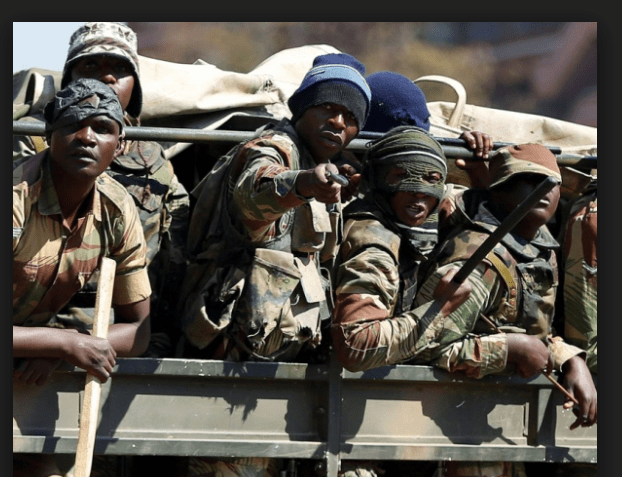Zimbabwean flags are still flying at half mast, while the nation has heeded calls not to play the blame game, but to focus on helping the needy, debates have emerged as people make reflections.
In noting what went wrong, people are deliberating on how to prevent such disasters in the future. The key suggestion was that the state should be proactive in relocating people to safer areas.
However, the government says it could not relocate them for fear of being retributed, as could have needed’minimun force’ by the country’s security apparatus.
The state seems confused on what constitutes minimum cohesion, and fears applying it.
The deputy minister of Information and Broadcasting Services, Energy Mutodi says it was going to be bad had the government tried to evict citizens affected by the cyclone, as they would have resisted being moved, giving the state no choice but to deploy the police and military to use the’so-called’ minimum force.
While responding to calls by some people, particularly the oppotion members who had suggested that the state could have moved people, when it was predicted that a cyclone was going to affect them, Mutodi says had that been executed, the move could have been bad, as the army was going to be deployed.
Meanwhile, some lambasted Mutodi’s line of thinking in saying the people could have required to be driven to safety by use of military force. They say if Mutodi is saying the required minimum force could have caused public outcry, then it becomes clear that the country’s security cannot distinguish what constitutes minimum or maximum force and where it is required.
Political science student at local university in the capital Norman Mamvura expressed dismay over Mutodi’s sentiments, saying with the reputation that the Zimbabwean security forces have earned for themselves, if a minister says their deployment could have triggered outcry, that exposed their bad habits.
“When military personnel help during times of distress such as, the cyclone disaster and others, no public outcry should be expected, but only when they over bound and get overzealous to the extent of killing people, the problem then comes.
“Let them stick to social mandate, no one would cry foul the problem is that our security apparatus do not know what minimum force is. How can they fear using it if they know it’s limits?” asks Mamvura.
This comes after the country’s defence forces have made a bad reputation for themselves after murdering unarmed civilians who were protesting, and according to the army and police the force they used while shooting civilians with live bullets was minimum and comisurate with job at hand.
“Evacuations could have done for those who complied but in this case it could have been evictions as Villagers would resist to move. The exercise would have required the police and the army to use minimum force as usual they were going to be fake rape, torture, and abductions,” says Mutodi.
Mutodi chided opposition leader Nelson Chamisa for suggesting that the government could have moved the people from low lying araes. Instead, Mutodi says Chamisa could have cried foul had the police and military came in to carryout the evictions using minimum force.
The subject became a hot topic in the house of assembly last week, with parliamentarians suggesting there was a lot that could have been done by the government that could have helped and save lives. People from several walks of life, said the state could have been proactive in minimising the loss especially by moving people to higher ground before disaster strikes.













